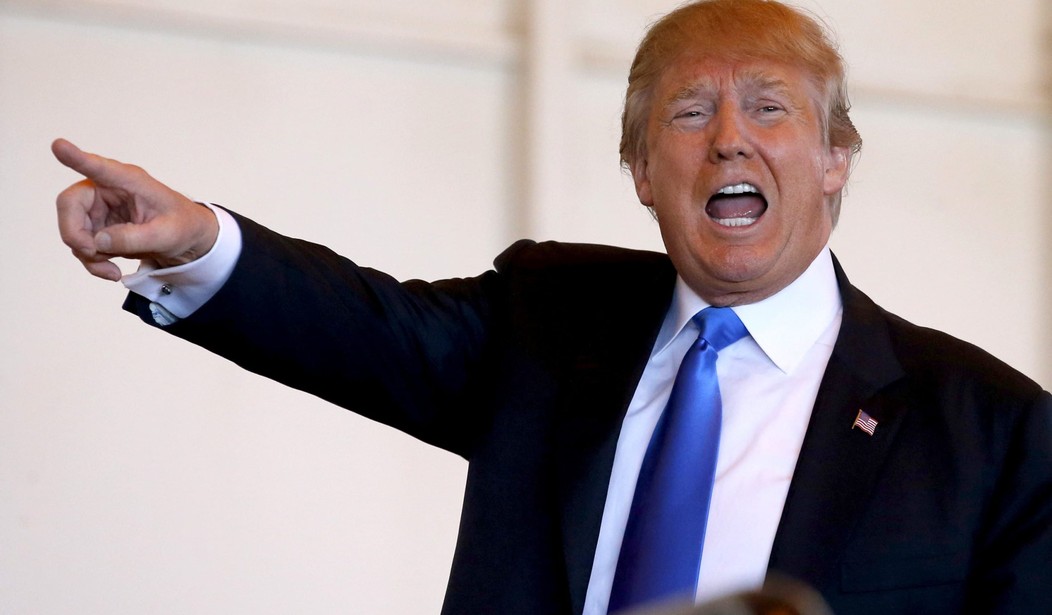The release of the Nunes memo at noon Eastern yesterday was timed to dominate the news cycles on both the East and West Coasts, as well as all points in between. The Super Bowl is coming up tomorrow, but in the aftermath of both the political news and the #takeaknee movement, there’s little Super Hoopla evident; by Monday nobody will care who won. But the beat in Washington will go on:
Rod J. Rosenstein’s tenure as deputy attorney general and the top Justice Department official overseeing the Russia investigation appears to be in peril after President Trump refused to say Friday whether he had confidence in him. After Trump authorized release of a controversial memo on FBI surveillance practices by House Intelligence Committee Republicans, he was asked by a reporter whether he was more likely to fire Rosenstein and whether he had confidence in the 27-year-veteran of the Justice Department who oversees its day-to-day operations and special counsel Robert S. Mueller III’s investigation.
“You figure that one out,” Trump replied.
Well, duh. Rosenstein is, after all, the guy who instigated the Mueller “Russian collusion” probe when, acting in the stead of the late Jeff Sessions, he authorized the year-long, open-ended fishing expedition into… something. And that’s not all:
The memo says that Rosenstein signed an application to renew a surveillance warrant on Carter Page, a former Trump campaign adviser, and says that information justifying that and other warrant requests to the Foreign Intelligence Surveillance Court was tainted by political bias. The FBI has said it has “grave concerns” that the memo leaves out important material, creating an inaccurate impression of its work.
As it happens, the president also has grave concerns about the FBI, as well as the Justice Department. To wit:
Trump Calls Justice Department and F.B.I. Conduct ‘a Disgrace’
President Trump on Friday intensified his attacks on his own Justice Department and F.B.I. for their handling of the investigation into Russia’s interference in the 2016 elections, hinting that senior leaders there should face consequences for conduct he called “a disgrace.”
Mr. Trump, who has become increasingly outspoken in his suggestions of wrongdoing by law enforcement officials as the inquiry has reached deeper inside the White House, made his comments as he announced that he had declassified a secret memo prepared by House Republicans that insinuates that the Russia investigation has been tainted by Democratic bias. “I think it’s terrible,” Mr. Trump said of the actions described by the document, which accuses federal law enforcement officials of abusing their authority when they sought permission to surveil a former Trump campaign adviser, Carter Page.
“It’s a disgrace what’s happening in our country,” Mr. Trump added. “A lot of people should be ashamed of themselves, and much worse than that.”
This, of course, sent the anti- and never-Trump factions into their usual fainting-sofa tizzy, while their media allies scrambled to inform the public that the very memo they had so confidently predicted threatened the very fabric of our democracy was, after all, old news, nothing new, and who cares.
The release of the memo raised fresh questions about whether Mr. Trump — who last year fired James B. Comey, the F.B.I. director overseeing the Russia inquiry, and then sought to remove Robert S. Mueller III, the special counsel named to take it over — might seek next to oust Rod J. Rosenstein, the deputy attorney general, who named Mr. Mueller.
Well, why shouldn’t he? If the Nunes memo is true, Rosenstein bears more than a little culpability for the ongoing mess, which has so far speared only Mike Flynn for a process violation, and a couple of supernumeraries named Carter Page and George Papadopoulos, the Rosencrantz and Guildenstern of this farcical rewrite of Hamlet, starring James Comey in the title role. All incoming presidents should have the clear right to put their own people into top political jobs; it’s long past time for the Civil Service concept (a Republican “good government” idea introduced in 1883 to replace Tammany Hall’s notorious spoils system) to be rigorously re-examined and jettisoned where and when necessary for the smooth functioning of a government elected by the people.
As the great Tammany fixer, George Washington Plunkitt, famously observed:
This civil service law is the biggest fraud of the age. It is the curse of the nation. There can’t be no real patriotism while it lasts. How are you goin’ to interest our young men in their country if you have no offices to give them when they work for their party? Just look at things in this city today. There are ten thousand good offices, but we can’t get at more than a few hundred of them. How are we goin’ to provide for the thousands of men who worked for the Tammany ticket? It can’t be done. These men were full of patriotism a short time ago. They expected to be servin’ their city, but when we tell them that we can’t place them, do you think their patriotism is goin’ to last? Not much. They say: “What’s the use of workin’ for your country anyhow? There’s nothin’ in the game.” And what can they do? I don’t know, but I’ll tell you what I do know. I know more than one young man in past years who worked for the ticket and was just overflowin’ with patriotism, but when he was knocked out by the civil service humbug he got to hate his country and became an Anarchist.









Join the conversation as a VIP Member